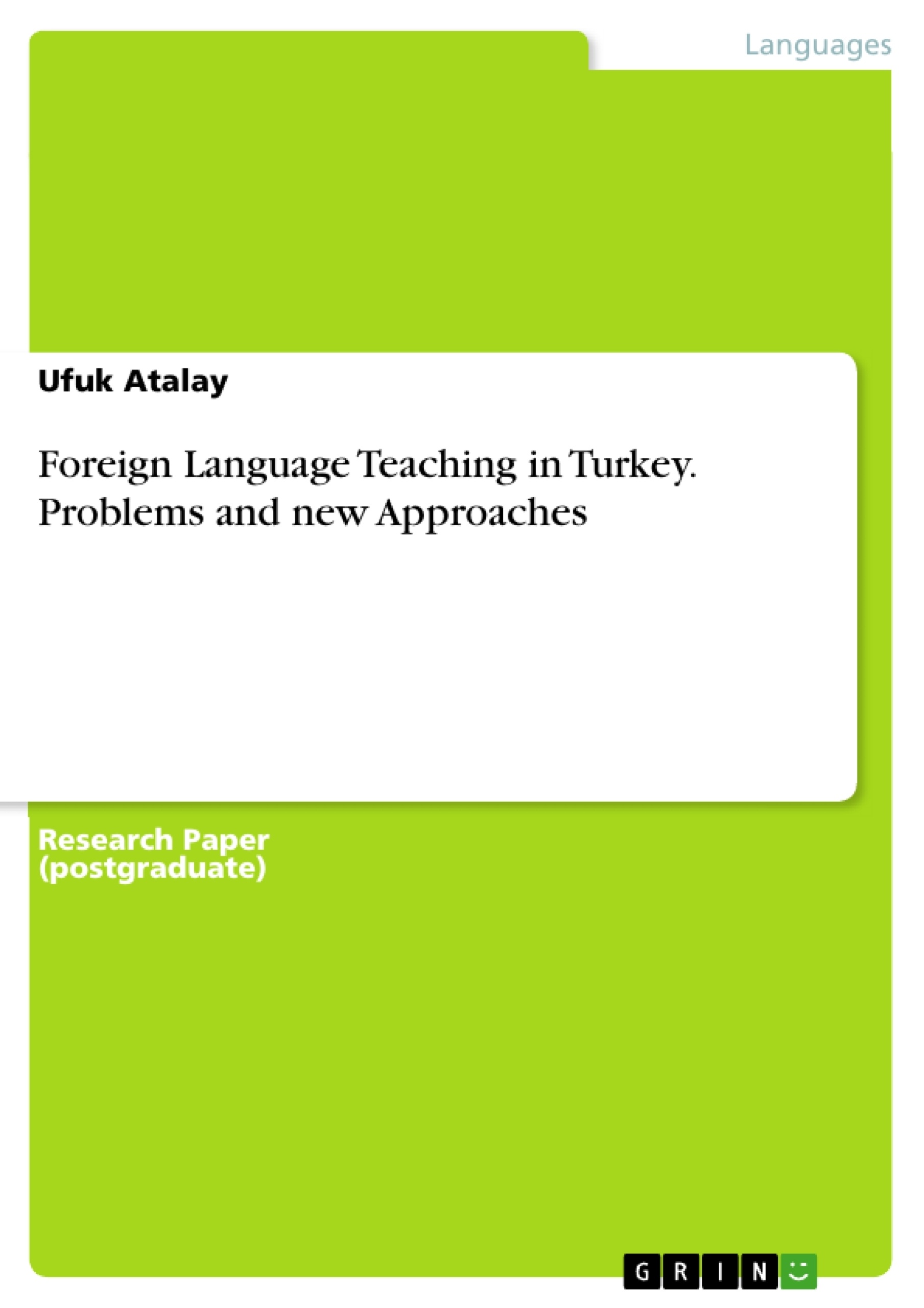This paper looks into the intricate landscape of foreign language education in Turkey, shedding light on its historical trajectory, challenges, and potential avenues for reform. The essence of language as a tool of communication is explored, emphasizing its role in conveying thoughts and emotions. The acquisition of a foreign language is positioned as not only an understanding of one's heritage but also an immersion into diverse cultures. The discussion on foreign language education in Turkey unveils a persistent dilemma rooted in the educational system's historical development, diagnostic phases, and bureaucratic complexities.
The reluctance of educators to adopt innovative methods compounds the issue. The evolution of teaching methods, from behaviorist to cognitive, is examined, showcasing a shift from mechanical learning to holistic cognition-based approaches. Innovation in education is presented as intentional change, encompassing factors like dissatisfaction with the status quo, desired outcomes, and resource investment. The innovation process is mapped out, involving scouting, input, diagnosis, planning, implementation, and evaluation. The relevance of each phase in transforming education is underlined. Current trends in Turkish education reveal a preference for traditional methods despite the global shift towards constructivism. The lack of integration between theoretical concepts and practical implementation is noted.
The importance of foreign language proficiency is underestimated due to its absence in national examinations. The impact of early language acquisition and the diminishing ease of learning with age are acknowledged. EUROSTAT research and PISA results highlight Turkey's low foreign language proficiency, accentuating the need for urgent reforms. The decline in proficiency over time underscores the pressing need for comprehensive strategies. However, the situation in underdeveloped countries is similar to that of Turkey, so the issues and solutions will also show similarities. Turkey has been presented as just one example.
Inhaltsverzeichnis (Table of Contents)
- Methods of Foreign Language Teaching
- Forecasts on Innovation
- Foreign Language Education in Turkey: An Analysis
- An Analysis of Eurostat Data and PISA Results.
Zielsetzung und Themenschwerpunkte (Objectives and Key Themes)
The text explores the challenges and opportunities in foreign language education in Turkey. It examines the evolution of teaching methods, the impact of historical development, and the need for innovation in language learning. The text also delves into the complex relationship between language acquisition, cultural understanding, and communicative competence.
- The historical development of foreign language teaching in Turkey
- The evolution of language teaching methods from behaviorist to cognitive approaches
- The role of innovation in foreign language education
- The relationship between language acquisition and cultural understanding
- The importance of foreign language proficiency in a globalized world
Zusammenfassung der Kapitel (Chapter Summaries)
- Methods of Foreign Language Teaching: This chapter explores the evolution of foreign language teaching methods in Turkey, highlighting the transition from the behaviorist audio-lingual method to cognitive-based approaches. It examines the strengths and weaknesses of different methods, such as the grammar-translation method, the direct method, and the audio-lingual method.
- Forecasts on Innovation: This chapter focuses on the concept of innovation in foreign language education. It examines the factors that contribute to a successful innovation process, including dissatisfaction with the status quo, desired outcomes, and resource investment. The importance of integrating theory and practice is also discussed.
- Foreign Language Education in Turkey: An Analysis: This chapter provides a comprehensive analysis of foreign language education in Turkey. It examines the challenges posed by the historical development of the educational system, bureaucratic complexities, and educators' reluctance to adopt innovative methods. The text also analyzes the current state of foreign language proficiency in Turkey, based on EUROSTAT and PISA data.
Schlüsselwörter (Keywords)
The key terms and concepts covered in this text include foreign language teaching, innovation in education, historical development of education, Turkey's education system, behaviorist and cognitive approaches to language learning, communicative competence, Eurostat data, and PISA results.
Frequently Asked Questions
What are the main problems with foreign language education in Turkey?
Challenges include a rigid bureaucratic system, educators' reluctance to innovate, and a lack of integration between theoretical concepts and practical use.
How have teaching methods evolved in Turkey?
Methods have shifted from mechanical behaviorist approaches (like audio-lingual) toward more holistic cognitive and constructivist approaches.
What do PISA and EUROSTAT results say about Turkey?
Data shows that Turkey has relatively low foreign language proficiency compared to global standards, highlighting the need for urgent reform.
Why is innovation difficult to implement in Turkish schools?
Innovation is often hindered by a preference for traditional methods and the fact that foreign language skills are not heavily weighted in national exams.
Does age affect language acquisition in this context?
Yes, the research acknowledges that early language acquisition is more effective and that learning becomes more difficult as students age.
- Quote paper
- Ufuk Atalay (Author), 2021, Foreign Language Teaching in Turkey. Problems and new Approaches, Munich, GRIN Verlag, https://www.grin.com/document/1389492



